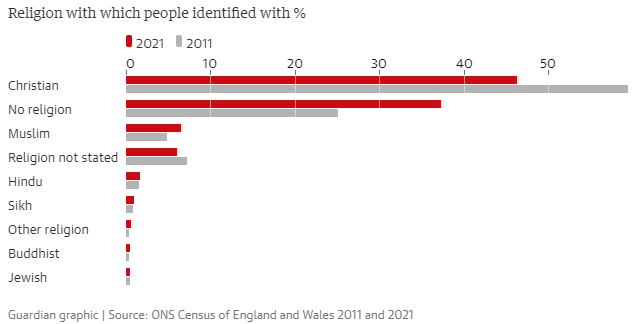The 2021 England and Wales census results are out now. Most headlines are focussing on the fact that this is the first time that less than 50% of our country now identifies as Christian. It’s dropped 13 percentage points vs the 2011 census and now sits at 46%.
Some are finding this particularly noteworthy in a country where the head of state - King Charles - is also the head of the Church of England, officially the “Defender of the Faith”. 26 Church of England bishops hold power in the House of Lords - the so-called “Lords Spiritual”. In theory state schools are required to hold daily acts of Christian worship, although many in reality do not and suffer no consequences.

The vast majority of the difference is explained by an increasing number of people declaring that they do not follow any religion. That’s increased by 12 percentage points compared to 10 years ago and currently sits at 37% of the country; around 22 million people.
In terms of percentage growth rates, some of the smaller “religions” top the leaderboard - although of course there’s a lot more room to grow by incredible sounding rates when you start from a very small number. Devotees of Shamanism have increased from 650 people ten years ago to 8,000 now. Pagans increased from 57,000 to 74,000, and there are now 13,000 folk identifying as Wiccan.